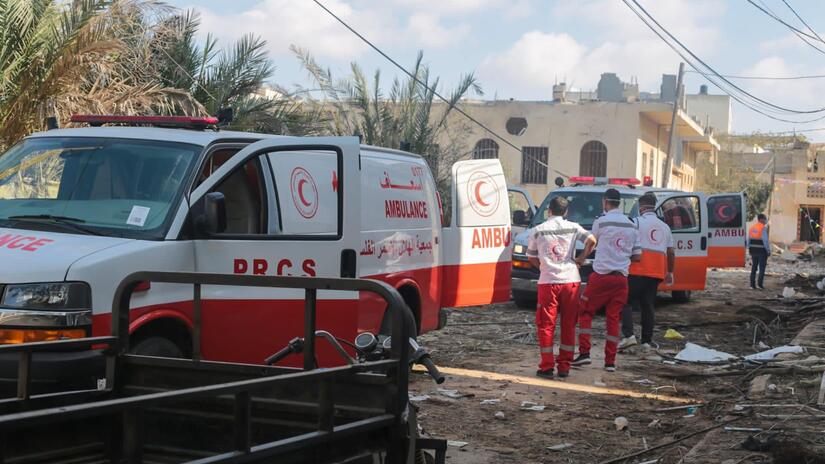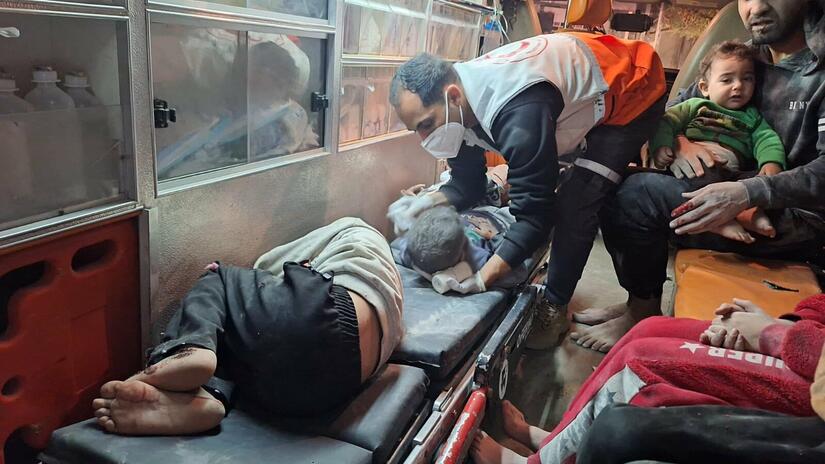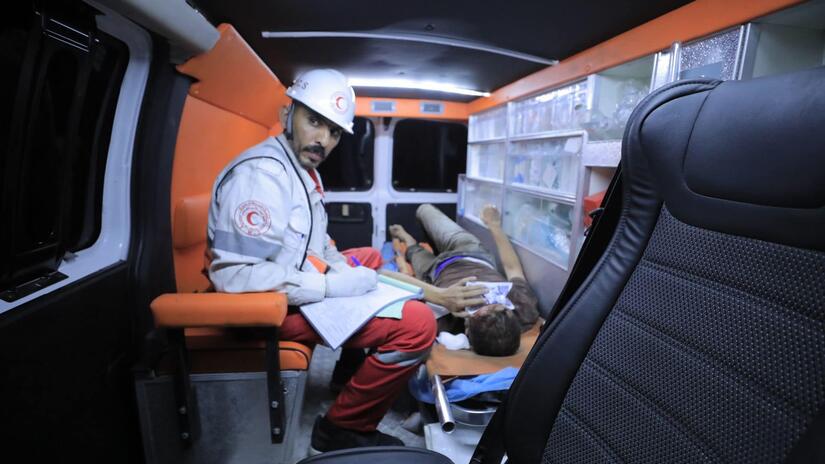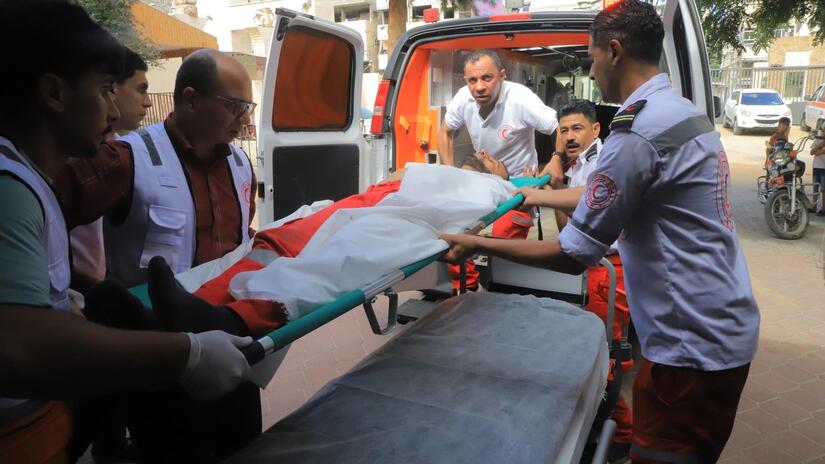Ever since armed violence erupted in Israel and the Gaza Strip on October 7, the work of emergency service crews has continued non-stop, often in the most harrowing of circumstances.
Every day, Palestine Red Crescent Society (PRCS) ambulance crews head out into the streets of Gaza, saving lives while risking their own, as even ambulances and hospitals have come under attack.
Since the beginning, PRCS teams have been tirelessly responding, providing first aid and psychosocial support, transporting the dead and distributing essential aid as the fighting continues.
Sadly, four PRCS volunteers lost their lives while on duty, making their colleagues’ work even more difficult as they try to cope with the loss.
“To be completely honest, I am afraid, much like everyone else,” Haitham Deir, a PRCS paramedic working at the Rafah branch. “I left my children at home with no access to food, water or electricity. When I’m on duty, I call them periodically to check on them, and this constant worrying is overwhelming, adding to the fact that we face gunfire and constant bombing, and some of us get injured or die.
“All of these challenges take a toll on our psychological well-being. Nevertheless, we persist. It’s a moral obligation, and I will continue to work until the very end.”

Palestine Red Crescent crews must try to reach wounded people in extremely dangerous situations and they are often blocked by damaged roads, roadblocks or other challenges.
Photo: Palestine Red Crescent Society
‘Our eyes and ears’
Apart from the incessant bombing and gunfire, PRCS crews have been struggling with intermittent communications blackouts, which means there’s often no way for people to call in for an ambulance when there is an attack.
This has heavily obstructed their response. However, the PRCS ambulance teams have found creative ways to ensure paramedics can find people when there is an urgent need.
“We strategically placed our ambulances, and we had to use our eyes and ears to watch out for bombings,” says Mohammed Abu Musabih, director of operations and emergencies for the PRCS in the Gaza strip. “Teams were then dispatched to areas that were bombed, because that’s where people will most likely need assistance.”
“We also placed ambulances near hospitals, and we relied on arriving ambulances carrying injured people to give us information about the location they came from,” he continued. “The ambulance crews then headed off to the location.”
Unfortunately, in most cases, even the most creative attempts have been ineffective as PRCS teams find it extremely difficult to reach people in need due to infrastructure damage, roadblocks and military sieges going on in various parts of the city.

Shortages of medicine, fuel, overcrowding at health facilities, and communications blackouts are daily challenges.
Photo: Palestine Red Crescent Society
Supplies running out, winter coming on
The situation inside Gaza hospitals has been all the more tragic, with doctors and nurses resorting to traditional medicine as supplies ran out. Many hospitals were forced to suspend their services due to lack of fuel.
Thousands of Palestinians have also sought refuge in hospitals, but after coming under siege, many people - including the sick and wounded - had to evacuate, with nowhere to go.
A great deal of affected people in Gaza are currently living in tents or open spaces; this leaves them extremely vulnerable as winter approaches, and with it comes the threat of flooding and the potential spread of disease. PRCS ambulance crews and other volunteers will be there doing whatever they can to ensure people get the best possible care under the circumstances.

Working around the clock, daily exposure to extreme trauma are taking a toll on ambulance crews.
Photo: Palestine Red Crescent Society
As of December 11, PRCS crews have provided emergency care to more than 11,000 people and they transported the bodies of more than 3,500 people who died due to the fighting. Crews in the West Bank have cared for more than 3,000 injuries and transported more than 80 people killed in the conflict.
“Ever since the hostilities began, the Palestine Red Crescent Society teams and volunteers were on the frontline saving lives, day-in and day out, with no break,” says Hossam Elsharkawi, regional director for Middle East and North Africa.
“The unprecedented level of challenges they faced is beyond comprehension. We highly salute them; they have shown humanity at its best. In parallel, we call on the international community to fast-track diplomatic solutions that address root causes, including an end to the inhumane siege on Gaza, and enable more humanitarian aid to get into all parts of Gaza, including fuel.”





